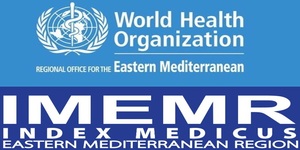Medical treatment of adenoid hypertrophy with mometasone furoate monohydrate nasal spray
DOI:
https://doi.org/10.36321/kjns.vi20142.2565Keywords:
adenoid hypertrophy, mometasone furoate monohydrate nasal sprayAbstract
Background: Treatment of adenoid hypertrophy is generally planned in accordance with the degree of airway
obstruction and related morbidity. If surgical treatment is indicated, the individual risk/ benefit analysis of patients should be assessed in terms of anesthetic and postoperative complications. Although there are few alternative treatment options, intranasal steroid applications may be considered as a nonsurgical approach in less serious cases and have been presented in this study.
Objectives: To assess the effect of mometasone furoate monohydrate nasal spray on adenoid hypertrophy and to determine how many patients will be excluded in the surgical treatment.
Methodology: A prospective, randomized, placebo controlled study was done in Al-Sader medical city in Najaf in the period of 31 of Dec. 2012 to 31 of Dec. 2013. Patients indicated for surgery were randomly divided into two groups. The study group was treated by mometasone furoate monohydrate nasal spray (NSSnasal steroid spray) of 100 micrograms/day (50 micrograms for each nostril) for 12 weeks. The control group was treated by normal saline (NS) nasal drops in the same way. All the patients were followed-up every 4 weeks.
Results: At the end of 12 weeks, statistically significant improvement (p < 0.05) was observed in the NSS treated group compared to the NS treated group in terms of nasal airway obstruction, mouth breathing, and night cough. At the end of 12 weeks, the average total symptoms score of the NSS treated group dropped of 12.82 to 4.75 while the NS treated group's score changed in 12.53 to 12.18. After 12 weeks of NSS treatment the initial adenoid/choana (A/C) rate had dropped of 87.14 to 51.42% and a total decrease of 35.72% was observed. After 12 weeks of NS treatment the A/C rate dropped of 87.5 to 85% and a total decrease of 2.5% was observed.
Conclusions: Treatment with mometasone furoate monohydrate nasal spray provides an effective alternative to
surgical treatment in children with adenoid hypertrophy. With the protocol applied in this study 77.2% of the patients were excluded of the surgery and removed of the surgical waiting list.
Recommendations: The reliability of nasal steroids for the pediatric population is widely recognized. Although
the mechanism itself has not yet been clearly and totally explained. We recommend that it is important to
determine the role of intranasal corticosteroids in treating children with adenoid hypertrophy.
Downloads
Downloads
Published
How to Cite
Issue
Section
License
Copyright (c) 2015 Firas Hassan

This work is licensed under a Creative Commons Attribution 4.0 International License.













